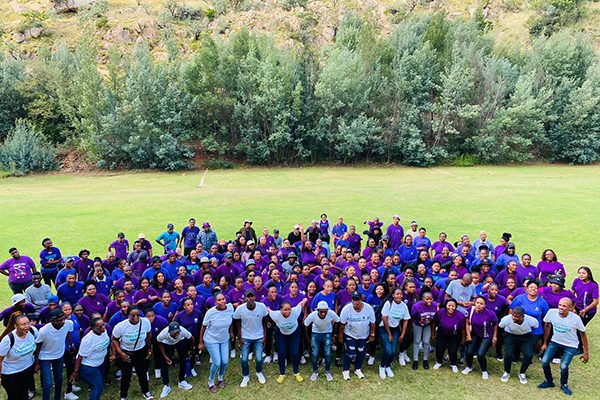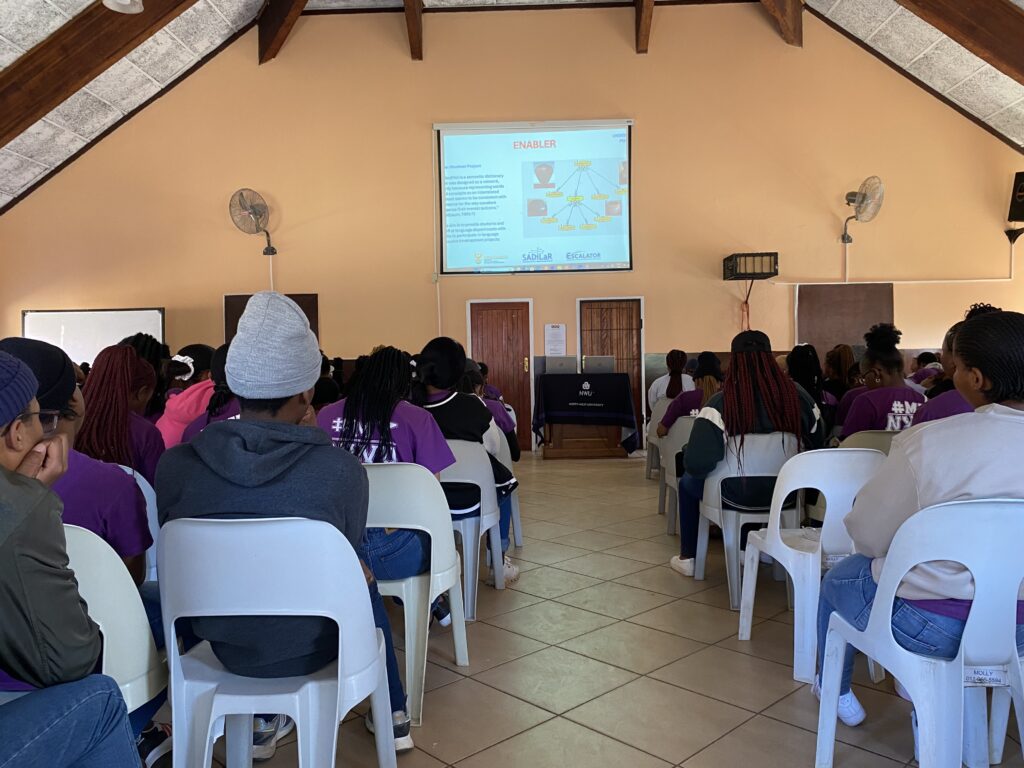3 September 2024

The North-West University’s (NWU) Faculty of Education recently organised a professional development camp for future African language educators to learn more about the world of digital humanities, tools and resources. A total of 235 students from NWU’s Mahikeng and Vaal campuses attended the camp, which took place from 16 to 18 August 2024 at Achterbergh Oasis in Krugersdorp. A highlight was a presentation by the South African Centre for Digital Language Resources (SADiLaR) and ESCALATOR, which introduced students to cutting-edge digital tools for language teaching and research.
ESCALATOR is a programme by SADiLaR aimed at supporting the development of an inclusive and active community of practice in Digital Humanities and Computational Social Sciences in South Africa. The ESCALATOR team delivered a comprehensive video presentation covering various digital platforms and applications to assist students in academic writing in African languages. The presentation focused on morphology, digitalisation, and research tools specifically designed for African languages.

“As ESCALATOR, we are thrilled to contribute to the professional development of these future educators,” says Jessica Mabaso, ESCALATOR’s project lead. “By introducing them to digital humanities resources early in their careers, we’re helping to bridge the digital divide and enhance the teaching of African languages.”
The ESCALATOR presentation covered several key areas: tools for academic writing in African languages, digital platforms for word definitions and language analysis, resources for research in African languages, and an introduction to the ESCALATOR programme and its benefits for language educators.
Students were also encouraged to join the ESCALATOR Slack community and mailing list to stay updated on the latest developments in digital humanities for African languages.
Kabelo Noosi, a junior lecturer at NWU’s Faculty of Education, expressed his appreciation for the contribution: “The presentation was excellent – addressing the content and information we wanted for our African languages subject group. Both lecturers and students were excited about the various platforms presented.”
The success of this collaboration highlights ESCALATOR’s commitment to supporting the next generation of African language educators and researchers, says Mabaso. “By equipping these future professionals with digital skills and resources, ESCALATOR is playing a crucial role in advancing the digitalisation and preservation of African languages.”
(Written by: Jessica Mabaso)
